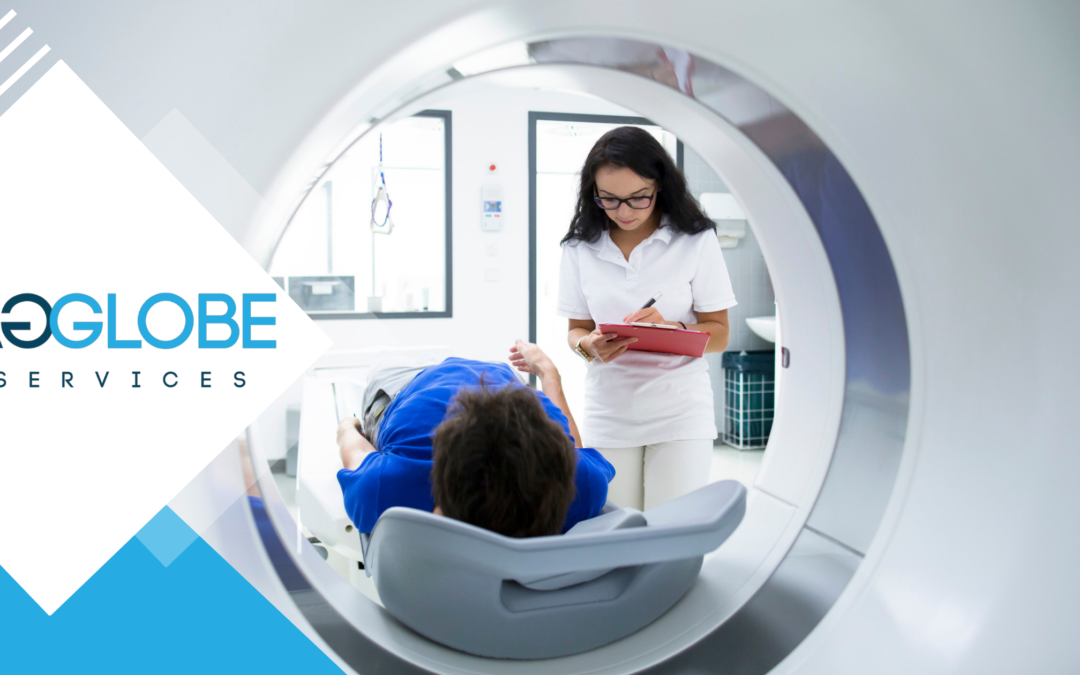
by hammad | May 24, 2023 | Blog, Client, Healthcare, Job Seekers
The heart is located in the center of our body. This body part is often associated with our emotions toward other people. In the Healthcare field, though technical skills are a basic requirement, having remarkable soft skills such as effective communication, team player, compassion, and problem-solving will help you in delivering the best care for your patients. This is pouring your heart into your work and for other people. Having these soft skills will help you grow as a professional as it makes you more satisfied at your job. In this blog, we will learn different things such as examples of soft skills and their importance in Healthcare, their impact on patient outcomes and satisfaction, and overcoming the challenges in incorporating soft skills into Healthcare.
Examples of Essential Soft Skills and Their Importance
Having soft skills play a vital role in providing your patients with the best care for them. Here are the soft skills that can help a Healthcare Professional:
- Adaptability
- Since Healthcare is an ever-changing field, having this soft skill allows the Healthcare professional to be able to adapt to new procedures, rules, and technologies to provide the best service to his/her patients. Adjusting to a new thing will not be stressful or hard. Also, Healthcare Professionals who have this skill are more open to learning new things that will help them grow professionally.
- Empathy
- One of the most important to have in Healthcare as it helps build trust and rapport between the Healthcare Professional and the patient. It allows an individual to connect and understand his/her patients on a greater level because emotions are attached to this skill. Having empathy also helps Healthcare Professionals to feel more satisfied in their jobs due to a deeper understanding of their purpose.
- Effective Communication
- Perhaps the foundation of all interactions with other people. To be able to connect with your patients successfully, communicating effectively is a must. As a Healthcare Professional, you must be able to relay complex information easily, listen attentively, and respond properly to your patients.
- Problem-Solving
- A Healthcare Professional is able to analyze a sprouting issue, develop an immediate and effective solution, and implement it efficiently is important in Healthcare, especially in emergency situations.
How soft skills can affect patient satisfaction and outcomes?
When Healthcare Professionals have the soft skills stated earlier, patients tend to be more treated easily and faster because they will listen to their physicians and nurses right away. This helps them reduce healthcare costs as well. Patients will have a better and clearer understanding of their medical conditions, fewer hospital readmissions, and improved health because they believe that the professionals that they are talking to are reliable.
Related: Unity in Diversity: The Vital Role of Cultural Competence in the Healthcare Environment
Challenges in Incorporating Soft Skills in Healthcare and How to Overcome Them
Even though essential, incorporating soft skills can be challenging. Some factors that can be the issue are the following:
- Time Limitations
- Due to the heavy workloads that our Healthcare Professionals are carrying every day, it makes it difficult for them to communicate effectively, connect deeper, and show sincerity and empathy to their patients. Most of the time, convenience comes into play as well as Healthcare Professionals lean more on the traditional approaches and are hesitant to learn new practices.
- Lack of Resources
- This is a common challenge to most Healthcare Organizations when trying to integrate soft skills. Manpower, time, access to modern technology, and cost are the factors that hinder the development of soft skills to provide high-quality patient care.
To solve these challenges, a Healthcare Organization can implement strategies such as providing education and training on soft skills, incorporating technology tools to streamline communication and collaboration, and promoting a culture of teamwork and collaboration. Offering flexible work schedules, encouraging peer-to-peer coaching and mentoring, and providing resources such as patient education materials can also help to support the development of soft skills.
Developing soft skills can help healthcare professionals, students, and aspiring workers advance their careers and make a positive impact on patients’ lives. With our expertise and resources at AG Globe Services, we can help you find a job that aligns with your career goals and provides a supportive work environment that values soft skills. Connect with us to learn more about how we can help you achieve your career aspirations.


by hammad | May 9, 2023 | Blog, Client, Healthcare, Job Seekers
Healthcare is a fundamental right for every citizen. Who provides the Healthcare that they needed? Healthcare employees. Taking care of the health of the public is a big idea but there is more to it such as conducting research, developing new treatments and therapies, diagnosing and treating patients, and educating the masses on how to take care of our health. With the expanding variety of patient populations, cultural competence has become a key skill set for Healthcare employees. What is cultural competence? It refers to the ability of a Healthcare professional to understand and respect cultural differences in their patients and to provide appropriate care while keeping in mind of their patient’s cultural beliefs, values, and practices. As we go along in this blog, we will discuss its importance and study how cultural competence can improve patient results, reduce Healthcare differences, and promote a more inclusive and diverse workplace.
Understanding the Cultural Differences
Healthcare and Healthcare Providers have been viewed differently across different cultures. Cultural beliefs also play a factor when it comes to Healthcare decision-making. As a Healthcare professional, how important it is to understand the cultural differences of our patients? To do this, we must acknowledge that cultural differences exist and we should be open to learning about and respecting those differences such as believing in traditional or herbal treatments or medicines. Sometimes, spiritual practices are also present. These things mentioned will affect how the patient or his/her family will make their decision. Always remember, being respectful of someone’s views is the key to understanding cultural differences.
Enhancing Patient Communication
Once we are culturally competent, we will be able to communicate with our patients effectively. We can relay messages easily and they will be able to understand them such as terminologies that can intimidate, confuse, or discourage them from getting the needed treatment. Being able to level ourselves accordingly will not just help our patients but will benefit us more because we are also improving our communication skills through language barriers and cultural communication styles.
Related: Music and Healing for Healthcare Workers
Addressing Healthcare Disparities
In every Healthcare setting, Healthcare disparities are always present.
- Racial and ethnic disparities- people that belong to ethnic groups are more vulnerable to Healthcare disparities than non-minority populations due to a lack of access to modern medicine.
- Socioeconomic disparities- people that earn low income are also less likely to have access to quality Healthcare.
- Geographic disparities- just like people in ethnic groups, people who live in far rural areas, due to geographical reasons, have limited access to good health services as well.
- Age-related disparities- as our bodies get old, we are more prone to different diseases. Access to long-term care can be a challenge for older people.
- Sexual orientation and gender identity disparities- in places where LGBT individuals are being discriminated against and deprived of equality in society, they experience Healthcare disparity and may have limited access to quality Healthcare services.
Creating a culturally inclusive workplace
Providing a safe space and environment for our diverse patients is a great way of showing that we care for them no matter our differences. Having regular training and education regarding cultural competence is an effective solution for this matter. Our Healthcare professionals will be able to understand different cultures, values, and practices. We will also be able to teach them ways how to communicate with our patients properly and effectively without disregarding their views on Healthcare.
As we move towards a more diverse and multicultural society, being culturally competent should be essential, especially in the Healthcare field. Our Healthcare employees are the keys to encouraging equal treatment for everyone.
If you’re looking for a career in Healthcare that values cultural competence, AG Globe Services can help you find your dream job. Join us in promoting cultural competence in Healthcare and take the first step towards a rewarding career. Contact AG Globe Services today!


by hammad | Apr 19, 2023 | Blog, Healthcare, Job Seekers
In our most recent Career Spotlight feature, we will be exploring the profession of a CT Technologist, which is highly sought-after and offers excellent opportunities for growth and advancement. These Healthcare Professionals are crucial in diagnosing and treating a diverse range of medical conditions. Due to the rapid development of medical technology, this role has become increasingly important in the Healthcare Sector. This blog will cover the responsibilities of a CT Technologist, the skills and qualifications required to pursue this career, and the challenges and opportunities presented in this field.
The American Society of Radiologic Technologists defines a CT Technologist as a Healthcare Professional who specializes in operating CT equipment to produce detailed 3D images of a patient’s internal organs, tissues, and bones. These images aid physicians in diagnosing and treating a range of medical conditions such as tumors and cancers, heart disease, blood clots, fractures, and brain or spinal cord injuries, among others.
In the daily course of their work, CT Technologists are responsible for several tasks, including explaining the CT scan procedure and positioning the patient on the bed to capture the best images. They also adjust the CT equipment to capture specific body parts such as the brain, chest, and abdomen, review and analyze the CT images to ensure their accuracy and quality. After conducting required tests for their patients, they discuss the scan results with physicians and other Healthcare Professionals involved to provide optimal treatment for the patient and maintain the CT equipment to guarantee its proper functioning when needed.
To become a qualified CT Technologist, one needs a combination of education, training, and practical experience. Relevant skills include having at least an associate degree in radiologic technology or a related field, earning certification by passing an exam covering practical skills and technical knowledge related to CT imaging and having an eye for detail to recognize minute changes in CT pictures that could indicate a medical issue.
CT Technologists are met with many challenges each day, some of which can include:
Radiation Exposure
The equipment used by CT Technologists emits radiation, which can be harmful if the procedure is not performed correctly. Strict safety protocols must always be followed.
Technological Advancements
CT Technologists need to keep up with the latest advancements in medical technology since science and technology are continuously evolving.
Patient Care
CT Technologists must provide excellent patient care as they are critical to accurate diagnosis and treatment by providing high-quality CT images.
Although there are a few challenges that come with being a CT Technologist, there are some great advantages in this career, such as:
Job Growth
Due to advances in medical technology, the demand for CT Technologists is expected to rise in the coming years.
Specialization
CT imaging has several areas of specialization, such as cardiac CT or CT-guided biopsies. Specializing in one area can be an excellent opportunity.
Teamwork
CT Technologists are part of a Healthcare team and collaborate with various Healthcare Professionals to provide the best possible care for their patients. This presents an excellent opportunity for professional growth.
It is evident that CT Technology will continue to play a significant role in the Healthcare Industry. With the increasing demand for this role, aspiring and certified CT Technologists can look forward to an exciting and rewarding career path.
Finding your dream job as a CT Technologist?
Here at AG Globe, we will help you find the best Healthcare employer for you! Get in touch with our team to make your dream come true.


by hammad | Apr 5, 2023 | Blog, Healthcare
The Healthcare Industry gives both rewarding and challenging experiences to its workers. Our Healthcare Workers are always facing different factors that can affect their overall well-being, such as high levels of stress, long working hours, and emotionally charged situations. However, there is a universal tool that can help ease even the most intense situations while working – music.
Centuries ago, music has been used as a form of therapy and relaxation. It has been shown to have benefits on one’s physical and mental health. According to AARP.org, listening to music directly impacts the brain by tapping into the sections that affect our memory and emotion. In this blog, we will explain the benefits of the most common stress-relieving music genres that will have you feeling calmer, happier, and more focused throughout your day in Healthcare.
Let’s jump into the wonderful world of music.
Classical Music
From students to professionals, classical music has been reliable in terms of giving a calm and soothing effect to its listener. Classic music has been shown to increase concentration when focusing on a task, while reducing one’s level of nervousness and anxiety. Due to the high level of stress, pressure, and emotional exhaustion our Healthcare workers experience in this Industry, listening to a piece of classical music is a great choice for a mood boost!
Here are some of our recommended classical music that you can try:
- “Jesu, Joy of Man’s Desiring” by Johann Sebastian Bach
- “Clair de Lune” by Claude Debussy
- “Moonlight Sonata” by Ludwig van Beethoven
Ambient or Instrumental Music
If you have already tried classical music and need a more modern sound, ambient or instrumental music might fit your taste. This type of music can be helpful when creating a calming atmosphere and help in reducing distractions. A simple search for “relaxing ambient music” or “lo-fi jazz” on YouTube will recommend you a variety of ambient music that you can enjoy.
Nature Sounds
As most Healthcare facilities are found in urban areas, listening to the sounds of nature can be challenging through the sounds of car engines, horns, and other noise pollution within our surroundings. Try searching for different sounds of nature on YouTube or Spotify to transport you to a forest with birds chirping or to a beach with waves crashing, which can be very relaxing and soothing.
Meditation Music
Also known as Yoga music, meditation music will help you feel steady, calm, and relaxed. You might be just sitting for a moment at your station, but your mind is unconsciously meditating and resting while listening to this music.
Own Preference
This might be the best recommendation that we can offer. Your own personal taste in music will always be reliable in boosting your mood as you take care of your patients. Singing along while listening to your favorites, new and old, is a guaranteed way to feel an uplift in positive energy.
In summary, music is that dependable friend we can lean on whenever we feel down. To be well-equipped for the different challenges faced throughout the day as a Healthcare Worker, listening to a few music or songs when there is a quick minute to spare will help release stress and reframe the attention to the present moment.
Enjoy music while working to keep you relaxed and happy. We believe that a healthy work environment is essential to every Healthcare employee, and at AG Globe Services, we make it a priority to find our Healthcare Professionals a work facility best suited for their needs. Contact us for more info.

by hammad | Mar 29, 2023 | Blog, Client, Healthcare, Job Seekers
Our Healthcare Workers have always been at the front lines of delivering immediate and vital care to our patients. During the unprecedented times of the COVID-19 outbreak, our Healthcare Workers were placed in a dangerous position, full of uncertainty. Ensuring their welfare during work has been especially important not only for their own health but also for the business and the quality of service that they provide to their patients. Every day, these hardworking professionals face different hazards during their duty, from being exposed to several infectious diseases and substances, to even workplace violence. In this blog, we will tackle the challenges faced by our Healthcare Workers on a day-to-day basis and the measures that can be taken to prioritize their safety.
Occupational Hazards
- Infectious diseases:
- Influenza, Tuberculosis (TB), and Hepatitis are some of the common infectious diseases that can be spread in enclosed environments such as hospitals. Some of these diseases can be caused by injuries from sharp and pointed objects like catheters, syringes, and surgical blades.
- Physical violence:
- Violence can be present, even in hospitals. It affects and sometimes involves patients, co-workers, and visitors. Hospital staff such as nurses are often vulnerable and exposed to this because as they are directly involved in patient care.
- Ergonomic Strain:
- Injuries due to ergonomic strain are often caused by poor sitting posture, too much time standing, forceful exertions, lifting, eye strain due to poor or excessive lighting, and/or repetitive motions at work.
- Mental Health:
- Due to the nature of the healthcare industry, our Healthcare Workers experience extreme stress from being short-staffed, anxiety from witnessing traumatic events, and are subject to other stress-inducing situations that often result in burnout, depression, and other mental health challenges.
Training and Education
Continuous training and education for Healthcare Workers are excellent to always ensure their safety and well-being.
- Infection prevention and control:
- Standard precautions such as hand hygiene, cough etiquette, sharps safety, and proper disposal of medical devices like syringes and catheters.
- Safe patient handling:
- There are many different techniques that will help our Healthcare Workers properly handle patients while still ensuring their physical safety such as proper use of the patient lift, transfer belt, and slide sheets. There is also training available on the importance of body mechanics when moving patients. The use of proper balance and stability will greatly reduce the risks of injury.
- De-escalation techniques for managing challenging situations:
- The healthcare industry can be volatile. Once a harmful situation arises, proper handling of the situation should be the priority to avoid casualties and intensify the situation into a crisis.
- Mental Health programs:
- Counseling, therapy, medication, and recreational activities are a big help to our medical staff in preventing and/or dealing with different mental health challenges.
The Importance of Personal Protective Equipment (PPE)
The use of PPEs became much more common due to the recent COVID-19 pandemic. PPE continues to play a critical role in protecting our medical front liners to keep them safe by limiting their exposure to disease. Due to its performance, ensuring sufficient supply is always encouraged. Additionally, proper use and disposal of this equipment are very essential as if worn incorrectly, increases the likelihood for infectious disease to spread, even if it was previously contained.
As the first responders and protectors of the general mass, our Healthcare Workers’ safety should be the top priority. By implementing strategies and programs for the betterment of their well-being, we can reduce the risk of injury and illness for our modern-day heroes.
Looking for a company that truly cares about your well-being as a healthcare professional? Contact AG Globe Services to help find you the best healthcare employer that will always prioritize your safety.


by hammad | Mar 15, 2023 | Blog, Healthcare, Job Seekers
Mental health is as important as our physical health. According to the Centers for Disease Control and Prevention (CDC), our mental health is also related to our psychological, emotional, and social well-being. Taking care of it is very important because the other three aspects will be affected once it is neglected, resulting in worse conditions. In the Healthcare field, healthcare employees are always vulnerable to different mental health challenges because of exposure to different factors such as patients, drugs, diseases, and the atmosphere. In order to be happy and relaxed while serving our patients, we must take good care of our mental health.
Most Common Mental Health Challenges
There are 4 common mental health problems for our Healthcare Employees:
Burnout. This is a type of work-related stress due to feeling drained most of the time. Feeling tired once in a while is normal but in the healthcare industry, healthcare employees need to attend to different patients in a day and the stress will start to build. Once different problems pile up, you will feel drained, and this means that you are already having a burnout.
Depression. This is a common and serious mental health problem in the industry as well. This negatively impacts how you feel, behave, process thoughts, and the way you act on certain things.
Anxiety. Constant feelings of panic, stress, nervousness, fear, and rapid heartbeat are symptoms of an anxiety attack. This greatly affects the behavior and may feel the want to withdraw from people around you, the work, and sometimes avoid the current situation that the person currently belongs to.
Post-traumatic Stress Disorder (PTSD). This type of mental health problem is not just for war veterans, even in the healthcare industry this is present. In the recent events of the COVID-19 pandemic, different patients suffer and die from left to right, and our front liners witnessed most of them. This greatly hit them and suffer this type of fallback.
Compassion fatigue. Decreased productivity is one result of this mental health problem. This is mainly caused by job dissatisfaction, heavy work atmosphere, and such. The person having this problem will sometimes take it out on other people in his/her surroundings like patients, colleagues, and visitors which can result in a bad reputation for the team and the hospital also.
How can we improve our mental health?
There are different strategies on how we can improve it such as self-care practices like regular exercise, eating healthy meals in a regular manner, getting enough sleep, and doing a relaxing activity from time to time.
There are mental health support programs that can help you maintain a healthy mind such as seminars or webinars. Listening to experts is one great way to resolve a mental health problem before it gets worse.
Having policies that promote mental health improvement in the workplace greatly helps all employees also. Your employees will feel that they are being taken care of and appreciated as well.
Prioritizing our mental health will help us not just do our jobs happily but will help us also live our individual lives to the fullest. Addressing these challenges at the earliest time possible should be our utmost priority.
Are you tired of the same old work routine and looking for a change? AG Globe Services has got you covered! Don’t wait any longer, call AG Globe Services today and take the first step towards a more fulfilling career!








